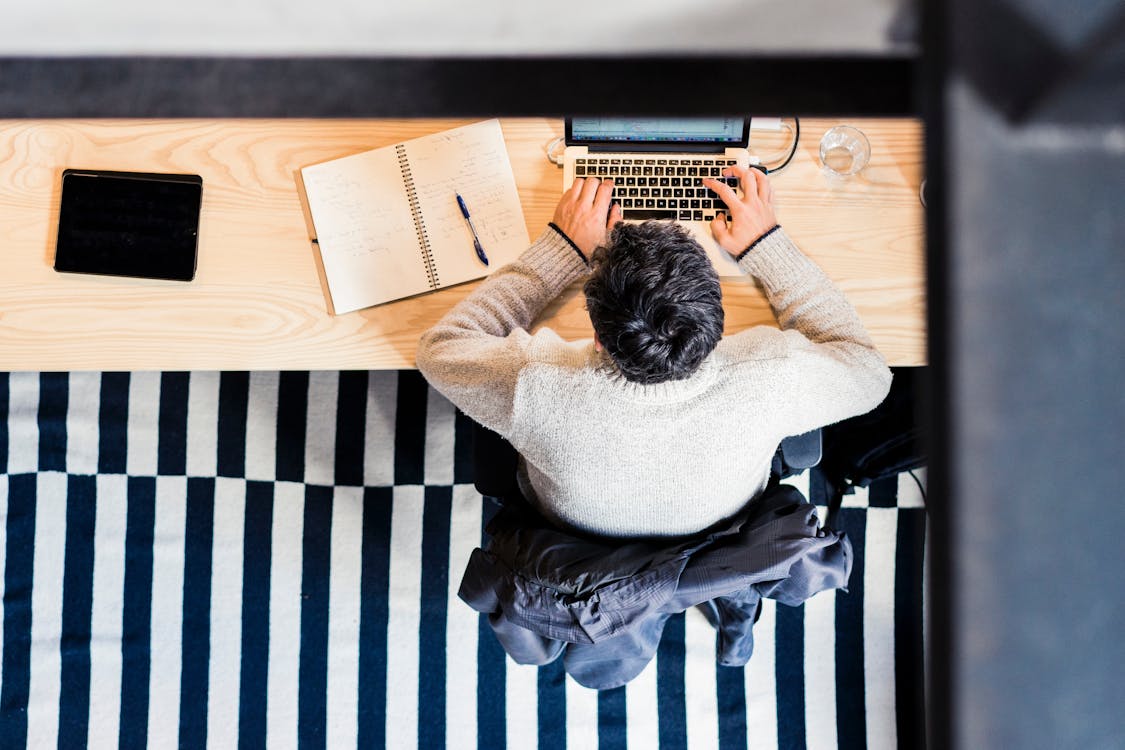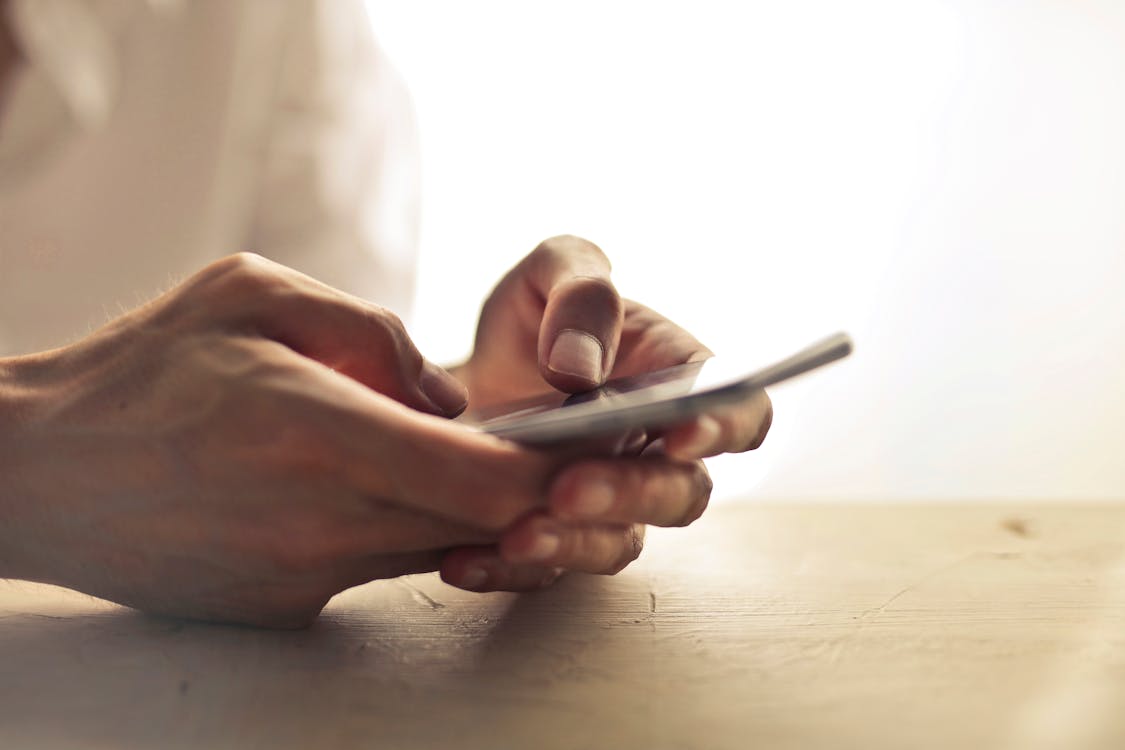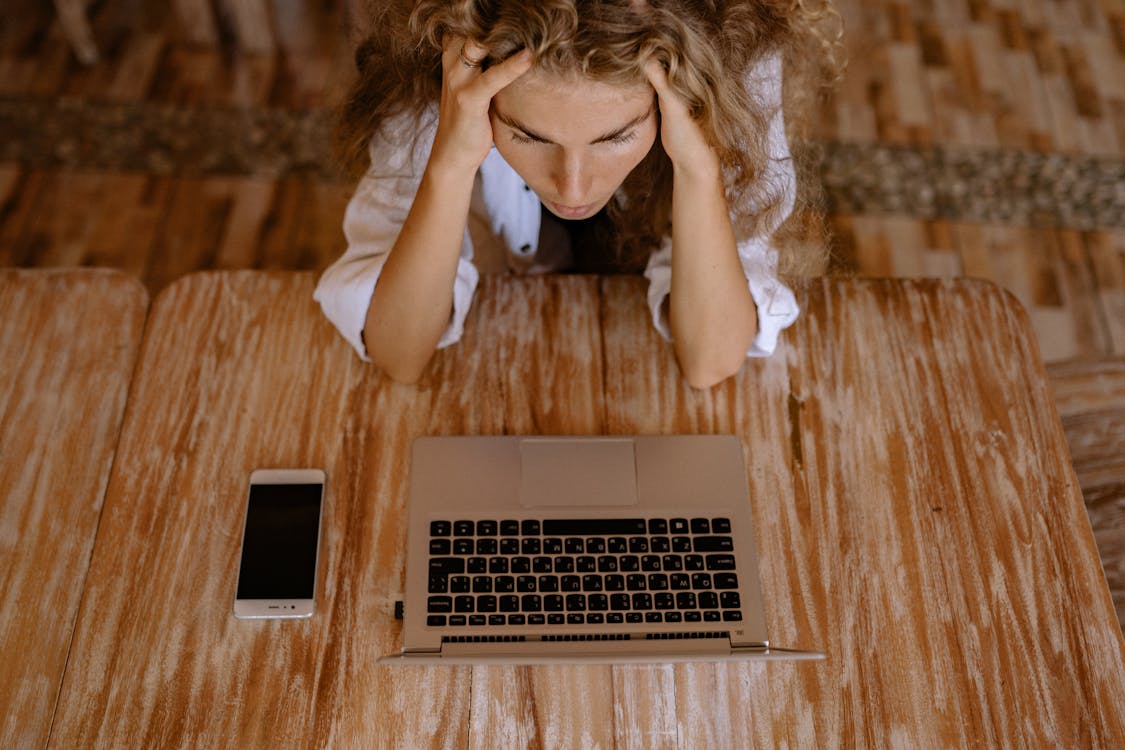In our digital era, the saying “Too much of a good thing can be bad for you” has never been more apt. Studies, including a report from Harvard University, highlight a worrying trend: there’s a direct correlation between increased screen time and heightened anxiety levels. As our lives have become more intertwined with smartphones, social media, and instant messaging, the pitfalls of this hyper-connected world are becoming evident.
Anxiety, once considered a product of genetic predisposition or life’s hardships, is now also being fueled by constant digital stimulation. There’s a growing need to strike a balance, to find ways of harnessing the benefits of our digital tools while safeguarding our mental well-being.

Understanding Digital Age Anxiety.
Causes and Triggers in the Hyper-connected World.
As devices buzz and screens illuminate our nights, it’s crucial to grasp the causes and triggers birthed by this relentless connectivity. This digital evolution profoundly reshapes our emotions and reactions.
- Information overload and its effects: Amidst the digital revolution, individuals are inundated with information at unprecedented rates. A study from the University of California, San Diego, estimated that Americans consume over 100,000 words daily from various media. This information deluge can lead to cognitive fatigue and heightened stress, spotlighting the need to address the repercussions of our data-saturated lives.
- Social media and comparison culture: The rise of social media has intensified “comparison culture,” with a recent study from the University of Pennsylvania linking extensive social media use to feelings of inadequacy and self-doubt. As users continuously measure themselves against curated lives online, the ramifications on self-esteem and mental well-being grow increasingly profound, spotlighting a modern societal challenge.
- Fear of missing out (FOMO) and its impact: Fear of Missing Out (FOMO) is a modern psychological phenomenon driven by today’s digital age. A 2020 study from the journal “Computers in Human Behavior” reveals that over 60% of adults feel FOMO regularly. This anxiety, stemming from not being part of social events or experiences showcased online, can escalate feelings of exclusion and amplify day-to-day stresses.
- Cyberbullying and online harassment: Cyberbullying and online harassment, prevalent in today’s digital landscape, have profound repercussions on mental health. A report by the Cyberbullying Research Center indicates that victims are more likely to experience depression, anxiety, and even suicidal thoughts. In an age where online interactions dominate, the implications of such malicious online behavior are more profound than ever.
Recognizing Signs and Symptoms of Digital Age Anxiety.
Physical symptoms.
Our bodies have a way of speaking to us, often signaling distress or imbalance through physical symptoms. It’s like your body’s SOS system, alerting you something’s amiss! Here are a few ways it might be trying to get your attention:
- Sleep disturbances: The CDC reports that 1 in 3 adults don’t get enough sleep, which can be a sign of underlying issues.
- Headaches and migraines: According to the World Health Organization, about half of the global adult population experienced a headache at least once within the past year. It’s not just about stress; it’s your body’s cry for help.
- Muscle tension and aches: Often brushed off, but the American Chiropractic Association notes that back pain alone accounts for over 264 million lost workdays annually. Those aches might be more than just after-effects of a workout.
Emotional symptoms.
Emotional symptoms are like the heart’s way of waving a red flag, urging us to pay attention.
- Restlessness and irritability: The Anxiety and Depression Association of America highlights that restlessness is often a common symptom among those with generalized anxiety disorder, signaling deeper emotional unrest.
- Constant worry and fear: It’s more than just being a worrier; nearly 6.8 million adults suffer from generalized anxiety disorder, where incessant concern and apprehension cloud daily life.
- Difficulty concentrating: The CDC reports that persistent distraction isn’t just about being daydreamy; it can be a marker for stress or mental health challenges, impacting our ability to focus.
Behavioral symptoms.
Behavioral symptoms act as telltale signs of our internal struggles, visible in our actions and choices.
- Avoidance of social situations: According to the National Institute of Mental Health, social anxiety affects 7% of the U.S. population, leading many to steer clear of social settings due to heightened fears.
- Increased screen time as a coping mechanism: A Pew Research study indicates a surge in screen time among adults, often used as an escape, which can potentially mask underlying issues.
- Neglecting real-world relationships: In our digital age, it’s alarming but true that 25% of Americans feel they have no one to confide in, as per 2006 study, pointing to a trend of prioritizing virtual over real-world connections.
Strategies for Managing Digital Age Anxiety.
Navigating the digital age can feel like walking through a minefield of anxiety triggers. Fortunately, with the right strategies, we can dodge those pitfalls and foster a balanced relationship with technology.
Setting boundaries with technology.
- Establishing designated screen-free times: Encourage specific disconnect times, like during family dinner. Studies show that regular tech breaks can improve focus. Envision a family enjoying conversation over a meal, free from device distractions.
- Creating a technology-free zone at home: Designate areas like the bedroom as tech-free zones. The Sleep Foundation found that keeping screens out of the bedroom promotes better sleep. So, read a book instead of scrolling before bed.
- Practicing digital detoxes and unplugging regularly: A digital detox weekend once a month, for example, can reduce dependency on technology. A study published in the National Library of Medicine linked reduced screen time to increased happiness. Think of enjoying a weekend hike without the urge to check your phone.
Do you think you might have a social media addiction? Check out this guide for more information!

Curating digital content and social media.
- Unfollowing negative or triggering accounts: Curate your feeds for a better mental space. A Harvard study found that positive social media interactions boost well-being. Picture feeling lighter as you scroll through a feed filled with inspiration and positivity.
- Limiting exposure to distressing news: Set clear boundaries on news consumption. The American Psychological Association has highlighted the stress caused by constant negative news exposure. Imagine starting your day with a balanced news digest instead of a doom-scrolling session.
- Following uplifting and inspirational content: Content that uplifts can do wonders for the mind. Visualize starting your day with a motivational podcast or a heartwarming community story. Remember, what we consume digitally often shapes our emotional landscape.
Embracing mindfulness and meditation.
- Incorporating mindfulness practices into daily routines: study by JAMA Internal Medicine suggests that mindfulness practices reduce symptoms of anxiety. Try a mini-meditation during your coffee break, anchoring your awareness to the present moment.
- Utilizing meditation apps and resources: Apps like Calm and Headspace offer guided sessions for all levels. A recent study found that 96% of meditation app users found them helpful. Try a guided meditation session during your lunch break, easing tension.
- Breathing exercises to reduce stress and anxiety: Rapid, shallow breathing can spike cortisol, the stress hormone. Simple techniques, like the 4-7-8 method, can become go-to tools when you’re frazzled. Think of a quick, calming breath exercise before an important meeting, restoring your composure.
Engaging in physical activity and nature.
- The role of exercise in managing anxiety: One study highlights how exercise reduces anxiety symptoms, promoting a healthier mind. A brisk jog during a lunch break can refresh your outlook.
- Benefits of spending time in nature: Time outdoors can boost mood and cognitive function. A report from Frontiers in Psychology underscores nature’s therapeutic potential. Imagine the tranquility of a weekend hike among lush greenery.
- Combining technology with outdoor activities: Using fitness apps to track progress during hikes adds a tech-savvy twist. The Outdoor Industry Association shows that 40% of outdoor enthusiasts use apps to enhance their experiences. Consider checking your step count as you explore a scenic trail.
Building a Supportive Social Network.
- Nurturing authentic relationships: Authenticity strengthens bonds. A Harvard study confirmed that strong personal connections can improve mental health. Sarah, for example, found solace sharing her challenges with her closest friends, making her journey less daunting.
- Joining online support groups and communities: The Internet isn’t just memes and cat videos. Platforms like Talkspace or 7 Cups connect users with supportive communities. Like Tom, who found an online group that helped him navigate his anxiety, offering advice and understanding.
- Seeking professional help when needed: Self-help has its limits. The American Psychological Association suggests seeking expert advice when feeling perpetually anxious. For example, Jane, after months of sleepless nights, decided to see a therapist, which turned out to be a game-changer for her.
- Cognitive-behavioral therapy (CBT): A widely practiced approach, focusing on identifying and changing negative thought patterns. Studies show it’s highly effective in treating anxiety disorders.
- Acceptance and Commitment Therapy (ACT): Focuses on accepting feelings without judgment and committing to valued actions. Research indicates ACT can enhance psychological flexibility.
- Mindfulness-Based Cognitive Therapy (MBCT): Integrates mindfulness strategies with cognitive therapy, proven to reduce recurrent depression relapses.

Utilizing technology for managing digital age anxiety.
Mental health apps and resources.
In this digital age, your smartphone can be a pocket therapist.
- Daylio: A user-friendly mood tracker that offers personalized insights through charts. It assists users in identifying mood patterns, enhancing emotional self-awareness.
- MoodKit: A digital journal that captures feelings using the Cognitive Behavioral Therapy approach. It pinpoints thinking habits and promotes healthier
- Woebot: An AI-driven chatbot, Woebot offers real-time responses and CBT-based advice. Its approachable demeanor and instant feedback make mental health support readily accessible.
Wearable devices for stress monitoring and management.
- Fitbit Versa: Measures heart rate variability to gauge stress levels. With guided breathing sessions, it offers timely relaxation interventions.
- Garmin Vivosmart 4: Beyond fitness tracking, it boasts a “Body Battery” feature, evaluating your energy reserves to signal potential stress.
- Samsung Galaxy Watch Active 2: Integrates sleep patterns and heart rates to reduce stress levels, and proposes meditation prompts to center yourself during tense moments.
Biofeedback devices for anxiety reduction.
Biofeedback devices are the new frontier in understanding our body’s stress signals:
- Muse Headband: Transforms meditation with real-time feedback on brain activity, offering insights into your calm or active states and promoting relaxation techniques.
- HeartMath Inner Balance: Plugged into your phone, it measures heart rate variability, guiding users to achieve emotional coherence and reduced anxiety through personalized prompts.
The Takeaway: Do you suffer from Digital Age Anxiety?
Striking the right balance between tech use and our well-being is more crucial than ever. While the constant pings and notifications can sometimes overwhelm, they also come with the promise of tools designed to enhance our mental health. It’s like finding the right rhythm in a song; you need both the high notes and the low ones. By implementing the strategies we’ve discussed, you’re not just reacting to the digital age; you’re actively shaping how it affects you.
And remember, technology’s potential to aid our mental health journey is still unfolding. With ongoing research and development, we’re not far from a future where our devices don’t just connect us to the internet, but also to a more centered, mindful version of ourselves. The key is to stay curious and open to these evolving resources.


Just as covid started up, I stopped looking at the news and it’s only in recent months that I have started reading it again. I definitely need to take some time from social media, I have been going on it far too much lately! FOMO is definitely something I experience, due to the after social media post, but trying to remember that people tend to only show the good things is important x
I find myself needing take a break from Twitter lately. It feeds me posts I am not interested in but they are quite intense!
Corine x
There is definitely a correlation between anxiety and social media. For me I just try to not follow accounts that bring me down.
What a wonderful article! I definitely have to take a break from all the tech things in life! I enjoyed reading this! Great information!
Having boundaries is very important… Having free technology is helpful and I learned this the hard way from a life lesson haha. These are great and we need to work on them. Thank you for sharing!
It can be a challenge to find a balance in the digital age we’re living in between needing technology and being overwhelmed with it. I like you included the best ways to combat all this digital overload induced anxiety.
Having a smartphone to be there and be our pocket therapist is so much helpful. Thank you for the app recommendations. I will surely check them out
The internet has made it easier for us to connect with the world but there are also cons to it. A lot of us feel more disconnected with our loved ones because of it and it cause so much anxiety. Thank you for the expert tips here.
I need to up the ante on my digital prowess. While it’s true, like you said, that so much can be overwhelming, it’s still super important to keep yourself in the game (knowledge-wise) when it comes to technology.
I think exercise is my best medicine. I also like tech free zones so that I can connect with my family.
watching your screen each minutes creates some forms of anxiety. i always have that, but finally a had a solution of not always being on screen. i have read how tips on your post and i will try it out. thanks
I often find myself being on my phone too much. It is easy to just look up something real quick, or do research on something. I find that I am often sucked in by my phone, and that it does give me stress and anxiety. When I try to put it aside, I realize that I am suffering from FOMO, so sometimes I feel like I can’t win, but your blog post is great with helping me recognize it, and finding tips to help. Thanks for sharing.
I definitely agree that it can be information overload. It’s overwhelming at times, and I’m trying to lessen my time on social media to help.
Screens are becoming even more prominent in our lives, and it can be easy to spend hours on social media or doomscrolling. Your suggestions for managing digital age anxiety are fantastic, and I think it’s good to have regular digital detoxes and spend time outside away from screens! Also, I completely agree it’s beneficial to unfollow negative accounts and follow positive accounts instead. Daylio and MoodKit sound interesting, so I’ll have to check them out!
I totally agree with this and this is the main reason why I practice social media detox once in a while. Thank you for sharing these tips. I love the idea of getting a digital journal and will check out MoodKit.
Your exploration of managing digital age anxiety in a hyper-connected world is so relevant. Your insights and tips for finding balance are spot on and practical. It’s a great read for anyone seeking to navigate today’s technology-driven landscape while prioritizing mental well-being.
Aaahhh yes, this is very timely advice! Being on social media more, these days, is getting more and more dangerous for our health. I will surely take on the 4-7-8 method!
I like you highlighted that to much of a good thing can be bad. It can be hard to find a balance in the digital age we’re living in. I like you included the best strategies for combating all this digital overload and anxiety.
I’ve found the most important things to do are (1) stop reading the news, (2) talk walks and exercise, and (3) don’t read social media (except for business). This all helps with my anxiety.
Great subject and a very important one. Our senses are not built for the digital harassment that’s going on in the modern age. We have been digitally raped from all angles and one should avoid anything that is digital and focus on analog (family, live friends, religion, exercise, nature) if he/she wants to maintain good mental health. And regarding social media, the results are obvious: instead of bonding people together, they made people much more anti-social.
I try not to be online too much anymore these days because all I see on my feeds are either people spending too much (which is triggering as a former shopaholic) or it’s just too negative. I often do social media purges where I unfollow any accounts that are no longer active or no longer fit my values. I’ve found that by doing that, I lower my digital anxiety and I feel much better about my social media pages.
Social media does have its part to play in terms of information overload. It’s amazing how much you read and see when you’re just endlessly scrolling. A great post about managing digital anxiety x
Lucy |